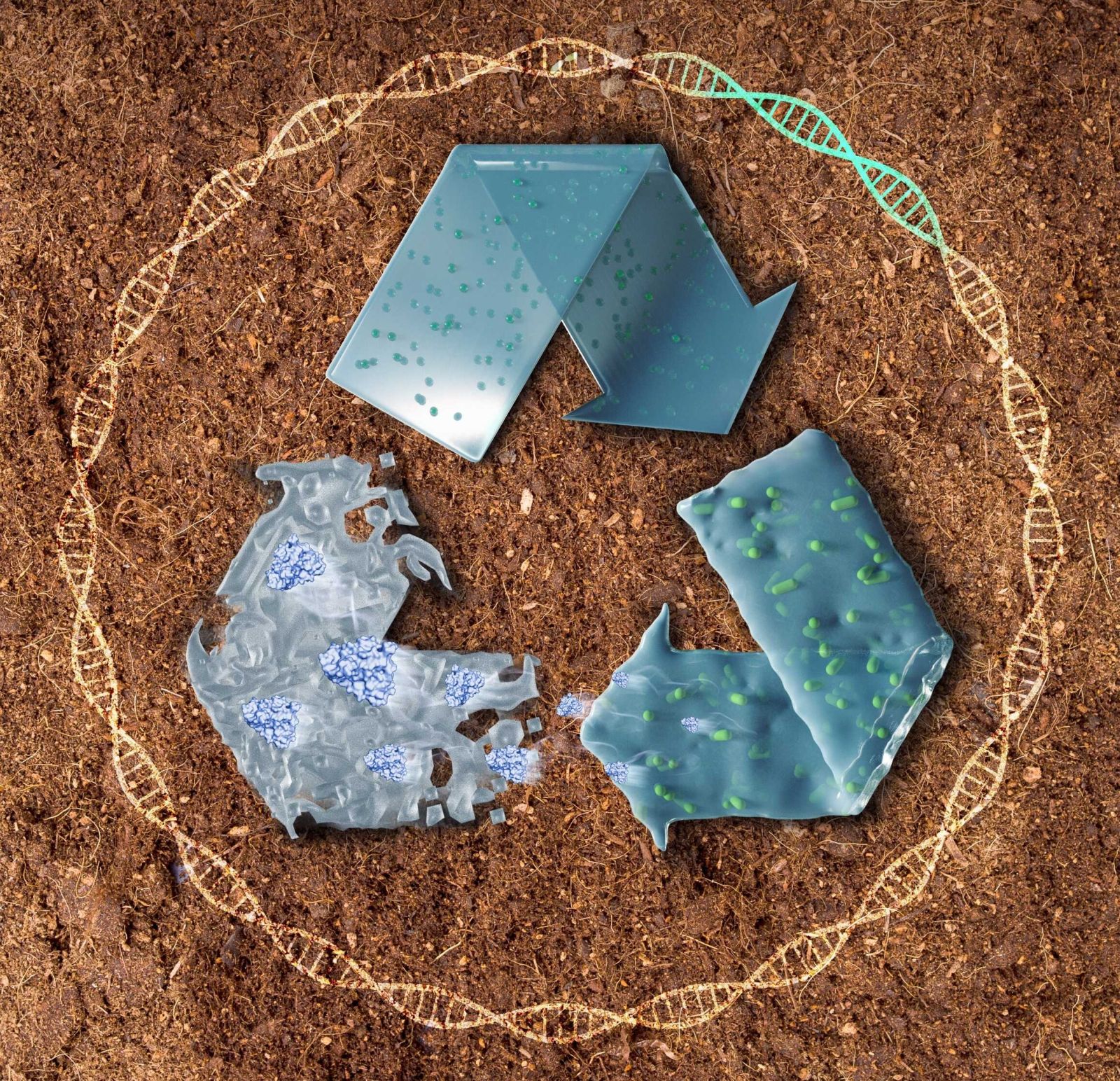This "living plastic" uses bacteria to self-destruct
Published by Cédric,
Article Author: Cédric DEPOND
Source: Nature Chemical Biology
Other Languages: FR, DE, ES, PT
Article Author: Cédric DEPOND
Source: Nature Chemical Biology
Other Languages: FR, DE, ES, PT
Follow us on Google News (click on ☆)

Researchers have developed "living plastics" by modifying spores to produce the enzyme lipase from Burkholderia cepacia, enabling nearly complete biodegradation of polycaprolactone.
Image from SIAT
This new technology draws its inspiration from a discovery made in 2016 in Japan, when a bacterium called Ideonella sakaiensis was identified in soil contaminated with polyethylene terephthalate (PET), a type of plastic commonly used in bottles. This bacterium, capable of feeding on plastic by producing specific enzymes, has sparked growing interest in finding natural methods to degrade synthetic polymers.
Scientists at the Shenzhen Institute of Advanced Technology, led by Dai Zhuojun, have built on this discovery to develop their own plastic degradation solution based on bacterial spores.
The proposed innovation hinges on the use of spores from the bacterium Bacillus subtilis, genetically modified to secrete a plastic-degrading enzyme called BC lipase. These spores are incorporated into plastic matrices during standard manufacturing processes, such as high-temperature extrusion or solvent dissolution.
Under normal conditions, the spores remain inactive, ensuring the material's stability during everyday use. However, when the plastic experiences specific triggers such as surface erosion or composting, the spores activate and begin producing enzymes that initiate polymer degradation.
To test the viability of this technology on an industrial scale, researchers conducted experiments using plastics containing these spores. The results show that the "living plastics" degrade rapidly: using enzymes to attack the surface, researchers observed complete decomposition in 6 to 7 days. Through composting, the biodegradable plastics decompose in 25 to 30 days, or twice as fast as conventional plastics.
The team also explored the application of this technology to other types of plastics, such as PBS, PBAT, PLA, and even PET. Results indicate that the spores remain active even after exposure to high temperatures, paving the way for potential use across a broad range of polymers. This versatility represents a significant asset for developing new biodegradable materials.
Despite these advances, technical and logistical challenges remain for large-scale adoption of this technology. Acceptance by industries and consumers, as well as assessing its overall environmental impact, will be crucial steps. Nevertheless, this research represents a significant stride towards creating sustainable materials capable of reducing the ecological footprint of plastics in our daily lives.